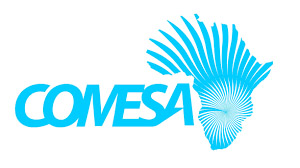
Kenya, alongside Ethiopia, Rwanda, Tanzania, and Uganda, has been chosen to implement the COMESA East Africa Community (EAC) Horticultural Accelerator (CEHA) initiative.
This program aims to streamline policies, develop value chains, secure financing, and boost Research and Development (R&D) within the horticulture sector. The CEHA initiative seeks to accelerate the growth of the Fruit and Vegetable (F&V) sub-sector across the COMESA and EAC regions.
Dr. Mohamed Kadah, Assistant Secretary General for Programmes at the COMESA secretariat, highlighted CEHA’s vision for 2031. The initiative aims to make climate-smart horticulture value chains a major contributor to income growth, job creation, and improved nutrition in Eastern and Southern Africa. Initially, CEHA will concentrate on three key value chains: avocado, onion, and Irish potatoes. These were selected based on their agronomic potential, logistical challenges, regulatory environment, market growth, and alignment with government priorities, as well as existing investments by development partners.
CEHA’s structure is designed to be bottom-up, with national-level stakeholders, primarily from the horticulture private sector, driving regional priorities. National Platforms Chapters of CEHA will focus on establishing strategic horticultural production and processing clusters, incorporating agribusiness incubators in the five targeted countries. These clusters will leverage each country’s unique comparative and competitive advantages to modernize regional horticulture value chains.
The COMESA Secretariat, through the Alliance for Commodity Trade in Eastern and Southern Africa (ACTESA), anticipates a significant transformation in the region’s horticultural industry. Currently valued at USD 4 billion, the industry could potentially double or triple in size over the next decade. High-value fruits and vegetables are more profitable than staple crops and are in increasing demand both domestically and for export.
Catherine Kithinji, Deputy Director for Trade and the COMESA focal point person, representing the Principal Secretary of the State Department for Trade, emphasized the importance of diversifying away from traditional staple crops like maize. She highlighted the potential of Irish potatoes to address food insecurity and the nutritional and economic benefits of avocados and onions. These crops could reduce reliance on imports and boost domestic production.
Dr. John Mukuka, CEO of ACTESA, noted that avocado, onion, and Irish potato could generate an additional USD 230 million annually for approximately 450,000 smallholder farmers. The selected countries—Kenya, Ethiopia, Rwanda, Tanzania, and Uganda—were chosen based on the financial contribution of their horticulture sub-sectors to their economies. In Kenya, avocado and Irish potato alone could create over 50,000 and 380,000 jobs, respectively.
Paul Nderitu, Chairman of the National Potato Council of Kenya (NPCK), which will host the CEHA-NPCK Kenya National Chapter, reiterated the significant economic potential of the horticulture sub-sector. In 2022, Kenya’s exports accounted for 35% of total exports in the EAC and 20% in COMESA, with exports to Africa growing by 15.7%. The EAC was a key market, with exports increasing by 17.7% to KES 357.7 billion in 2022, driven by higher exports to Tanzania and Rwanda.
